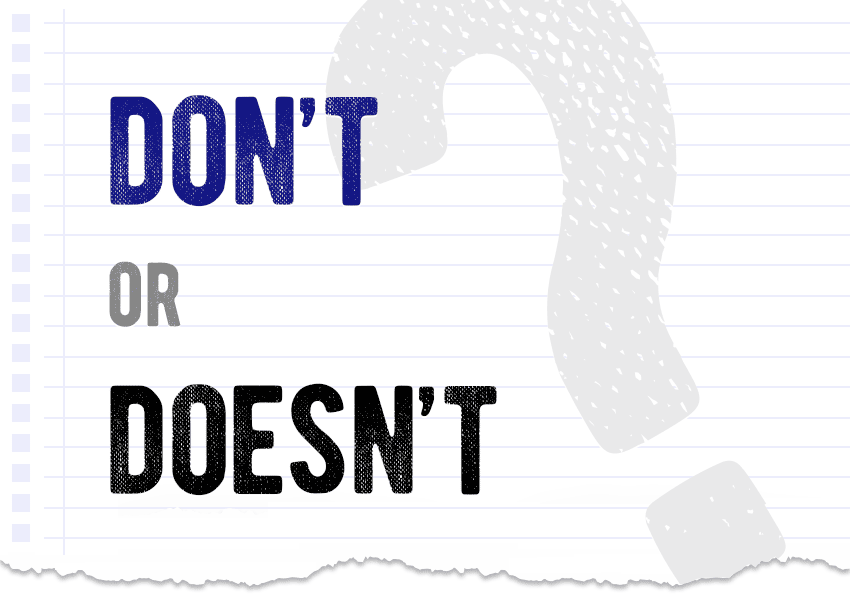Don’t or doesn’t — which is correct?
Present simple — probably the first English tense you had a chance to meet and fall in love with (who would not?). It seems that you already know everything about it. Then, you watch some film, hear a song, or read a book, and your inner peace is disturbed: which version is incorrect: doesn’t or don’t? How do you actually use them? Never lose hope, we are going to answer the questions.

Don’t or doesn’t — is there an incorrect form?
The answer is: it depends. On the person, it concerns, of course. Both forms, don’t and doesn’t are contractions and act as auxiliary verbs.
Don’t is a contraction of do not, which is used in a negative sentence. It applies for the first and second-person singular (‘I’ and ‘you’) and all the plural persons (‘we’, ‘you’ and ‘they’).
Don’t can also be used when asking a question, for example: You want to go to the cinema, don’t you?
Doesn’t is a contraction of does not, and is analogically used in negations and questions. It applies only to the third-person singular (i.e. ‘he’, ‘she’, ‘it’).
So, if you happen to hear something like ‘I doesn’t’ or ‘he don’t’, do not despair. It might be just a slip of the tongue, or possibly, the speaker does it on purpose, or they just don’t know or forgot the basic rules of the English grammar.
Remember to use full forms do not and does not in official letters or documents: contractions are not welcomed in such cases.
Doesn’t and don’t in idioms
You can find a bundle of lovely and useful idioms, featuring don’t or doesn’t.
If something doesn’t amount to a bucket of spit, it means that it is utterly useless. Don’t throw the baby out with the bath is a useful piece of advice not to lose the good parts of something together with the bad parts, and reject it as a whole instead of just removing what is bad. A humorous expression, don’t ask me, I just work here, informs you that the speaker doesn’t have enough knowledge or experience to answer your question. When somebody doesn’t cut the mustard, it means that they are either unable to work in a satisfactory way, or they do not reach acceptable standards.
Doesn’t or don’t — examples from literature
‘I am so clever that sometimes I don’t understand a single word of what I am saying’.
Oscar Wilde, The Happy Prince and Other Tales, 1888
‘It is more fun to talk with someone who doesn’t use long, difficult words but rather short, easy words like “What about lunch?”’.
A. A. Milne, Winnie-the-Pooh, 1926


